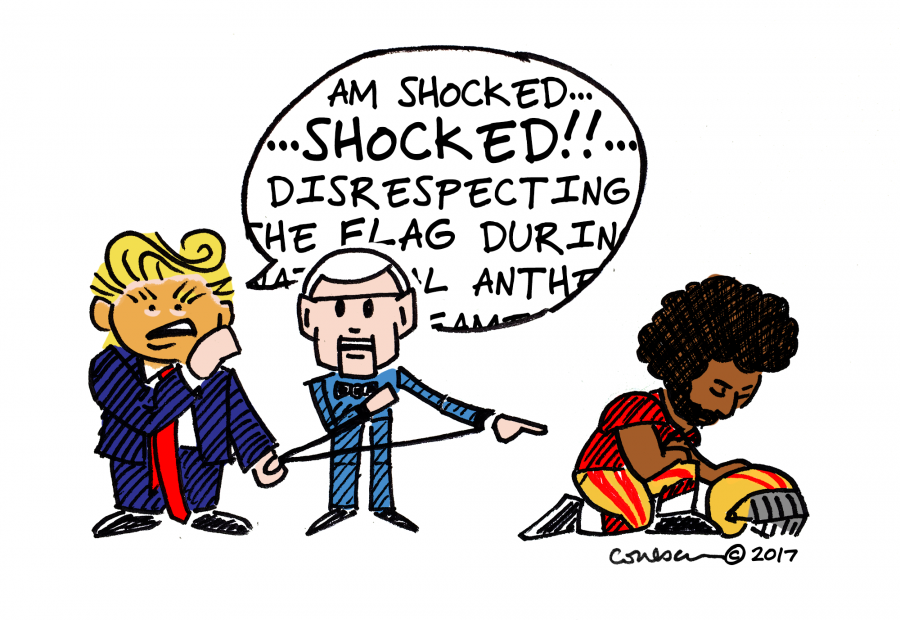“YOU ARE A STUPID LIBERAL IDIOT! They are disrespecting the flag and the military of this great country. If you watch Fox News or ask my cousin who was in the military, you would know the real truth of how soldiers feel.”
“OH MY GOD YOU RACIST PIG…Are you too slow to comprehend what the protest is about? CNN said it was about racial inequality. If you were a minority you would know that.”
This is a theoretical conversation, but one that has become a common theme that defines a problem that is polarizing America today. The problem is confirmation bias. Confirmation bias is defined as trying to interpret new evidence as confirmation of one’s existing beliefs or theories.
The issue has crept into our world of 24-hour news and social media, especially when the matter becomes politically or racially charged. Whether it is a gun debate, Colin Kaepernick’s protest or anything about being American, people seem to always link websites or tag people they know will share their viewpoint on the subject.
In all fairness, there is nothing wrong with this. A good argument is more of a discussion in which all parties understand each other. Unfortunately, this does not happen when there is bias. Arguments tend to become a mudslinging contest of insults.
Most people believe their view is the right view. But why does this happen? Simply put, it is human nature. Always wanting to be right can lead to confirmation bias because people with bias already have their mind made up. People ignore anything that does not conform to their biases and they continue to throw out information that confirms theirs as true.
The NFL protest of the National Anthem is a great example of this because both sides have their biases and post what agrees with their biases. They may end up posting misinformation to confirm that bias or encourage more polarization based on the “proof” that they may have.
We have all seen the links, memes and tags to military friends or politicians posted about this subject. All of these things agree with their bias but have no real backing of the entire picture. Why do people go to extreme lengths to confirm their bias? Is the person afraid that they may be wrong? Is this just one of many cases proving that humans always want to be right?
Whatever the case, it seems that people will try to find ways to confirm their pre-existing beliefs rather than seek a different viewpoint of a situation. Confirmation bias is a problem that is dividing Americans and tearing into the notion of “united we stand.”






